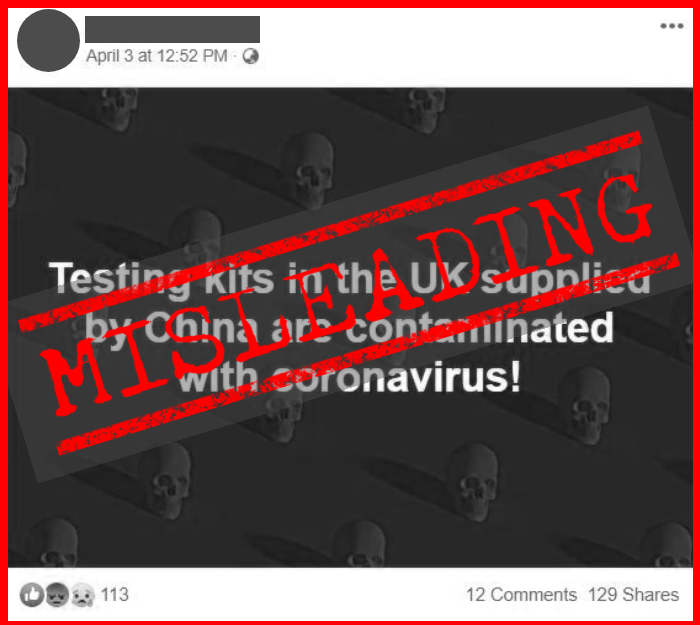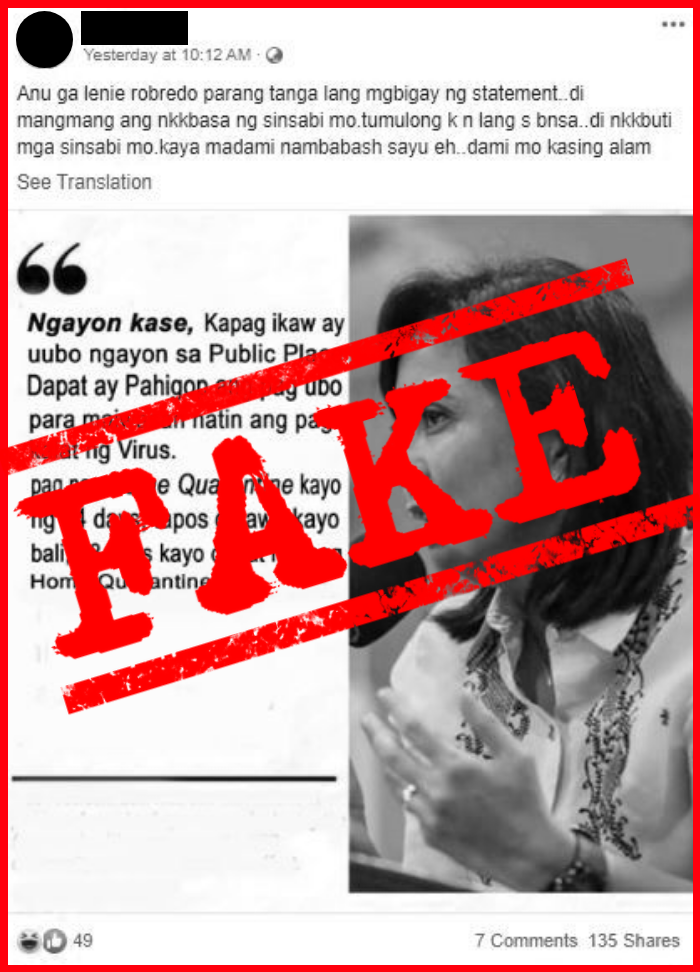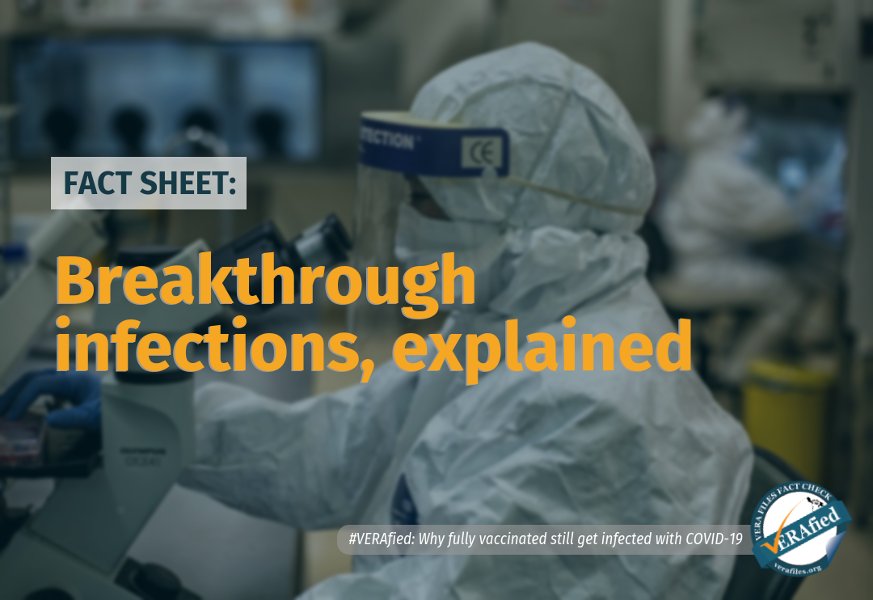A Filipino netizen published a misleading Facebook (FB) post on April 3 that twists an article about COVID-19 testing kits imported by Britain being contaminated with coronavirus. It falsely claims the kits are from China.
The deceptive post read: “Testing kits in the UK supplied by China are contaminated with coronavirus!”
On March 30, The Telegraph reported that the United Kingdom could face delays in mass testing for COVID-19 after traces of the novel coronavirus (SARS-CoV2) were found in components of imported test kits. The article, which was cited by several British media outfits in their own stories, did not say the kits were supplied by China.
The Telegraph said one of the suppliers, Eurofins — a Luxembourg-based laboratory and testing company — informed British laboratories that parts of the testing kits called “probers and primers” that have been delivered to them were contaminated with the virus. There was no mention in the story of Eurofins sourcing its products from China.
The misleading FB post was published two days after reports of European countries complaining about the accuracy of China-made testing kits surfaced. Slovakia, for one, purchased $16-million worth of kits from China but these were later found to be “unable to detect COVID-19 in its early stages.” Spain found some kits to have less than 30 percent accuracy in COVID-19 detection while the Netherlands rejected testing kits from China for being substandard.
Likewise, Health Undersecretary Maria Vergeire said in a March 28 press briefing that some test kits sent by China only have a 40 percent accuracy. She retracted the statement two days later and clarified that a different brand had the inaccurate rating, and that the Chinese test kits the Philippines received have been assessed by the Research Institute of Tropical Medicine and have passed the World Health Organization’s testing standards.
The fabricated post has 129 shares and over a hundred reactions to date.
(Editor’s Note: VERA Files has partnered with Facebook to fight the spread of disinformation. Find out more about this partnership and our methodology.)






